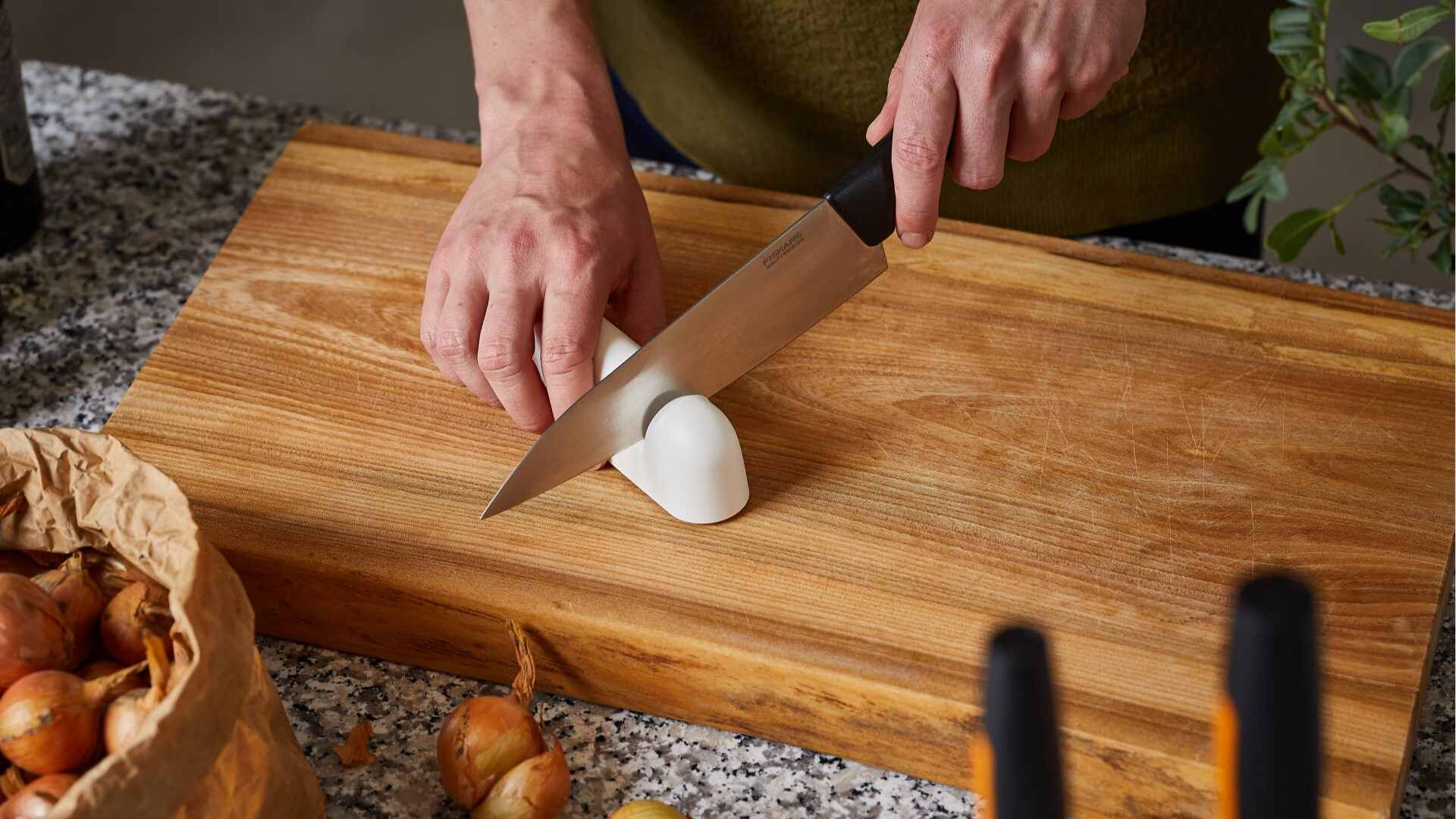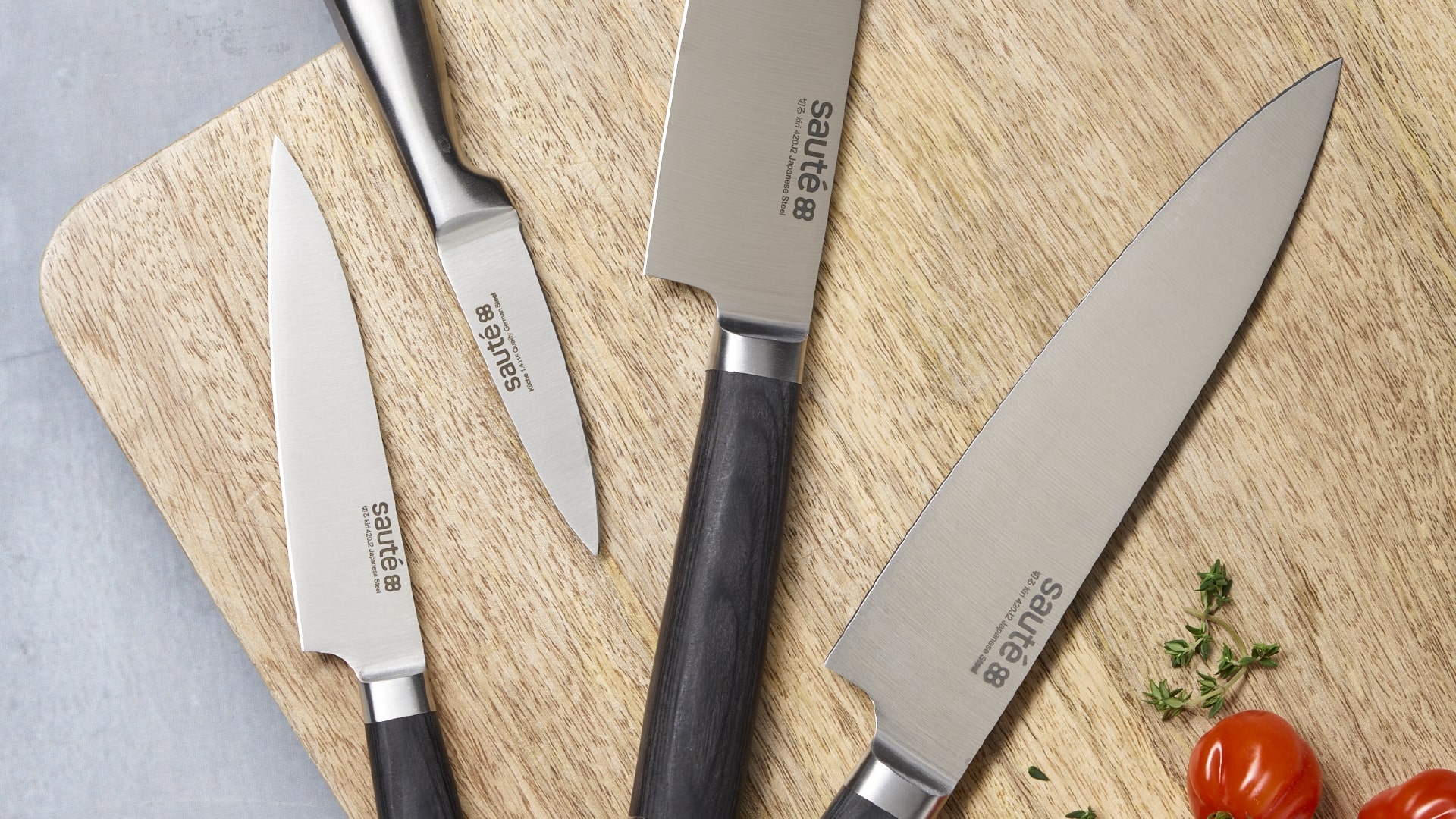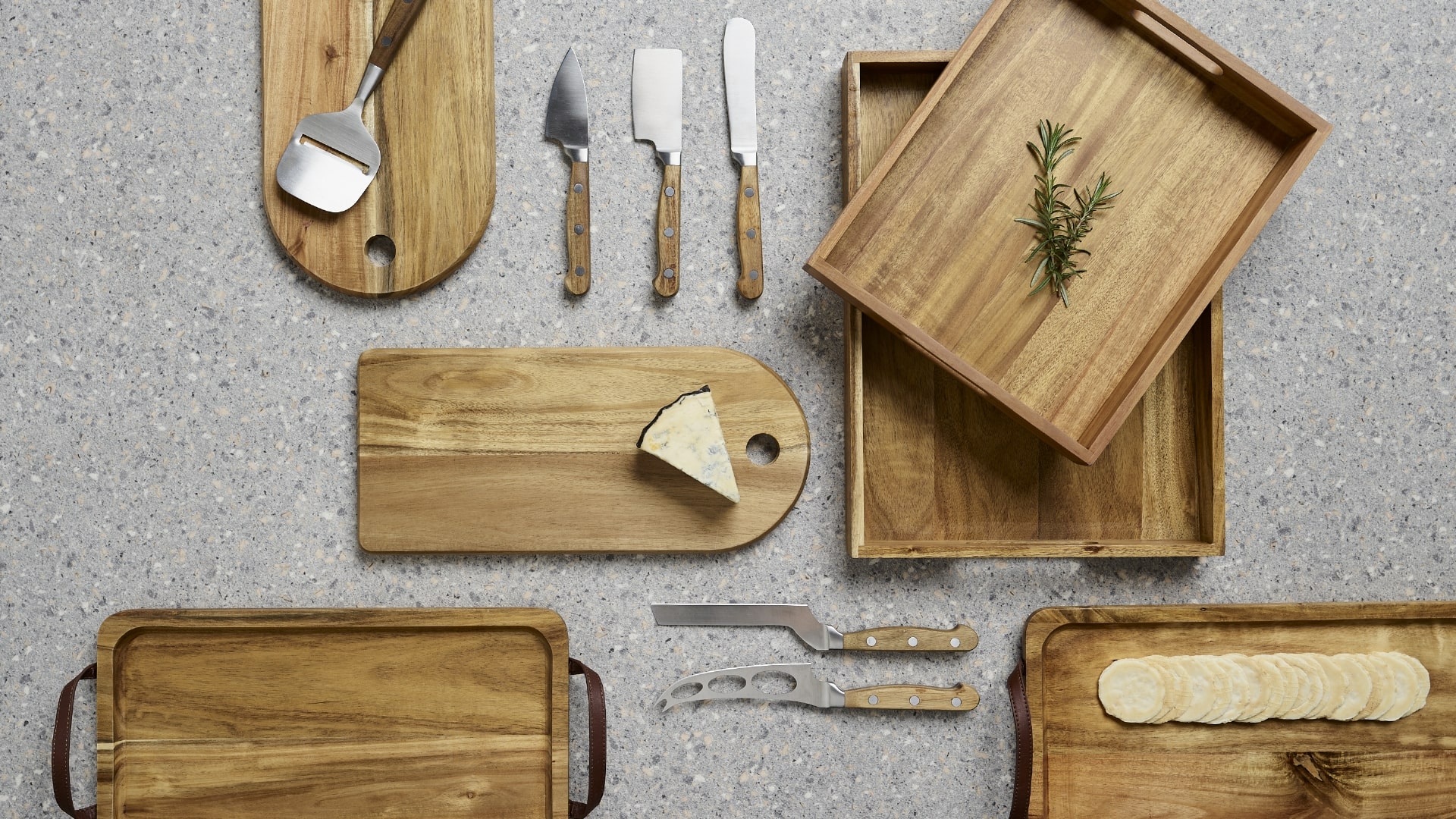 | ||
| Your browser is not supported. | ||
|
Please browse our site using any of the following options:
| ||
Caring For Kitchen Knives And Chef Knives

Whether you're a Michelin-star chef or someone who cooks only because of family pressure, a quality kitchen knife - or knife set - is the kind of kitchen investment that can turn a chore into a pleasure.
As our following tips illustrate, using and caring for your knives doesn't require a lot of effort. But applying the right kind of TLC will guarantee the longevity, function and value for money that a good, dependable kitchen knife should offer you.
Quick Links:
- Make sure safety comes first
- Slicing is better than chopping
- Always use a cutting board
- Knives are not for cutting frozen goods
- Keep them sharp
- Washing & cleaning your knives
- Storing your knives

Make Sure Safety Comes First
When it comes to knives, as it does with any kitchen utensils that have the capability to cause serious injury, safety should be your first priority.
Always place the blade on a flat surface with the handle facing outwards and the sharp edge of the blade facing away from your cutting hand. If you have to walk around your kitchen, hold the knife by the handle with the blade tip pointing downwards and the sharp (or blade) edge facing behind you. If you have young ones hanging around, make sure they're paying attention and steer clear of benchtops while knives are being used in food preparation.
Slicing Is Better Than Chopping
As a general rule, it's believed that a slicing motion is better for your knife than chopping. Using a random chopping action dulls the blade far too quickly, and most knives aren't designed to withstand forceful contact for long periods of time.
Try to slice and dice - but don't chop. You can do this by keeping the tip of the knife in contact with your cutting board at all times, then slice in a guillotine style wherever possible.
Shop Kitchen Knives & Scissors
Always Use A Cutting Board
A lot of architects and designers are now designing functional kitchens that incorporate ceramics, stainless steel and granite benchtops for slicing, dicing, chopping and so forth. While they look fantastic, these kinds of surfaces will make your blades go blunt faster. Always use plastic or wood cutting boards instead - they're much more blade-friendly.
Knives Are Not For Cutting Frozen Goods
It's fair to say that Ginsu knives - the ones you see on television that cut the tops off soft drink cans and slice through frozen chicken - have created unrealistic expectations when it comes to what our knives should be able to do. Trying to use your knife like a cleaver or cut frozen items will only dull the blades and, in some cases, damage them permanently. Just give your food some time to thaw out!

Keep Them Sharp
It sounds fairly obvious but the sharper the blade, the better they perform. As a general rule, if a knife slides off the skin of an onion, it's time to sharpen it.
There's a multitude of ways to sharpen knives. You can take them to a professional sharpener but this can be costly if you've got a knife set that's gone fairly blunt. Some knives come in a self-sharpening case or container but it still pays to give these knives a good sharpening from time to time.
Most experts also recommend you avoid electric sharpeners. While they certainly come in handy and save you time, they have a tendency to strip away too much blade metal. Pumice or water-based stones are what a number of pro-chefs prefer but they can be tricky to master.
So what's the best option for your home?
Honing rods are a reliable, do-it-yourself sharpening fix. Compared to a pumice stone, for example, a honing rod is relatively easy to master and is considerably cheaper than professional sharpening.
If you're setting up a kitchen from scratch and you're looking to invest in a knife set - or knife block - look for sets/blocks that come with a honing rod included. If you already have a dependable knife set in your kitchen, honing rods are widely available in retail outlets.
Washing And Cleaning Your Knives
Always wash knives separately in warm-to-hot water with a splash of detergent, and hand-dry them as soon as possible after cleaning. Wash your knives by holding the blade away from yourself as you wipe up and down both sides of the knife.
Never put your knives in the dishwasher. Never soak your knives, never submerge the blades and never let your blades air-dry.
Even though a good knife is made from quality stainless steel or carbon, microscopic 'dings' can develop in the blade from the intensity of dishwasher water pressure. Alongside air-drying or soaking your knives, these practices can allow rust to set in, which will only erode the performance of your knives.
Shop Kitchen Knives & Scissors
Storing Your Knives
The main points to keep in mind are to not loosely store your knives because this can cause tiny chips, dings or breaks in the blade, as well as damage knife handles.
If a knife block isn't an option, a magnetic wall strip is a decent alternative and, if a wall magnet isn't an option, purchase blade sleeves/protectors before popping them in your drawers and store them safely away from little hands.
There's no reason why you should be buying knives every year. With some care, they can last you a generation. Look after your knives, treat them with respect, and they will look after you and your family.
Want to look at more kitchen & dining options?
Check out Spotlight's range of Kitchen & Dining ideas online, visit your local store or contact one of our experts for further assistance.




